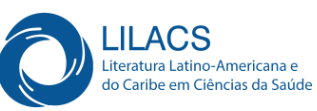Estrés y respuestas de afrontamiento en adolescentes con sobrepeso
DOI:
https://doi.org/10.5433/2236-6407.2021v12n1p76Palabras clave:
obesidad, adaptación psicológica, psicología del desarrolloResumen
La obesidad es una enfermedad crónica de origen multicausal y requiere tratamiento multidisciplinario. Tener una enfermedad crónica puede provocar varios factores estresantes, especialmente en la adolescencia, y el uso de estrategias de afrontamiento puede contribuir al manejo de la adversidad. El estudio investigó el afrontamiento en adolescentes con exceso de peso. 14 adolescentes de 11 a 17 años (M = 14.77) compusieron la muestra. Cuestionario sociodemográfico y cuestionario de respuesta al estrés: el sobrepeso (RSQ) y los datos se analizaron mediante estadística descriptiva. La presencia de sobrepeso desde la infancia indica mayores respuestas al estrés. Se identificó el uso de estrategias adaptativas de afrontamiento, lo que contribuye a una mejor adaptación de los adolescentes en relación con el sobrepeso. La investigación permitió la expansión del conocimiento sobre los mecanismos de afrontamiento relacionados con el sobrepeso en adolescentes.
Descargas
Citas
Aparicio, E., Canals, J., Arija, V., De Henauw, S., & Michels, N. (2016). The role of emotion regulation in childhood obesity: Implications for prevention and treatment. Nutrition Research Reviews, 29(1), 17-29. https://doi.org/10.1017/S0954422415000153.
Bellodi, A. C. (2018). Obesidade em crianças e adolescentes: temperamento, estresse, coping e risco psicossocial familiar. (Tese de Doutorado, Pontifícia Universidade Católica de Campinas, Campinas). Recuperado de http://tede.bibliotecadigital.puc-campinas.edu.br:8080/jspui/handle/tede/1054.
Bloch, K. V., Klein, C. H., Szklo, M., Kuschnir, M. C. C., Abreu, G. de A., Barufaldi, L. A., Veiga, G. V., Schaan, B., Da Silva, T. L. N., Moraes, A. J. P., Borges, A. L., Oliveira, A. M. A., Tavares, B. M., Oliveira, C. L., Cunha, C. F., Giannini, D. T., Belfort, D. R., Santos, E. L., Leon, E. B., ... Goldberg, T. B. L. (2016). ERICA: prevalências de hipertensão arterial e obesidade em adolescentes brasileiros. Revista de Saúde Pública, 50(supl 1), 1s-12s. doi: https://doi.org/10.1590/S01518-8787.2016050006685.
Compas, B., Connor, J., Osowiecki, D., & Welch, A. (1997). Effortful and Involuntary Responses to Stress: Implications for Coping with Chronic Stress. In B. H. Gottlieb (Ed.), Coping with Chronic Stress (pp. 105-132). New York: Springer.
Compas, B. E., Connor-Smith, J. K., Saltzman, H., Thomsen, A. H., & Wadsworth, M. (2001). Coping with stress during childhood and adolescence: Problems, progress, and potential in theory and research. Psychological Bulletin, 127(1), 87-127. doi: https://doi.org/10.1037/0033-2909.127.1.87.
Compas, B. E., Jaser, S. S., Dunbar, J. P., Watson, K. H., Bettis, A. H., Gruhn, M. A., & Williams, E. K. (2013). Coping and emotion regulation from childhood to early adulthood: Points of convergence and divergence. Australian Journal of Psychology, 66(2), 71-81. doi: https://doi.org/10.1111/ajpy.12043.
Compas, B. E., Jaser, S. S., Dunn, M. J., & Rodriguez, E. M. (2012). Coping with chronic illness in childhood and adolescence. Annual Review of Clinical Psychology, 8, 455-480. doi: https://doi.org/10.1146/annurev-clinpsy-032511-143108.
Connor-Smith, J. K., Compas, B. E., Wadsworth, M. E., Thomsen, A. H., & Saltzman, H. (2000). Responses to stress in adolescence: Measurement of coping and involuntary stress responses. Journal of Consulting and Clinical Psychology, 68(6), 976-992. doi: https://doi.org/10.1037//0022-006X.68.6.976
Cunha, K. da S. (2017). Relações entre risco psicossocial familiar, coping do tratamento da obesidade infantil e controle parental da alimentação. (Dissertação de mestrado, Pontifícia Universidade Católica de Campinas, Campinas). Recuperado de http://tede.bibliotecadigital.puc-campinas.edu.br:8080/jspui/handle/tede/935.
Dahl, R. E., & Conway, A. M. (2009). Self-Regulation and the Development of Behavioral and Emotional Problems: Toward an Integrative Conceptual and Translational Research Agenda. In S. L. Olson & A. J. Sameroff (Eds.), Biopsychosocial Regulatory Processes in the Development of Childhood Behavioral Problems (pp. 290-318). New York: Cambridge University Press.
Dietz, W. (1998). Health consequences of obesity in youth: childhood predictors of adult disease. Pediatrics, 101, 518-525. doi:https://doi.org/10.1542/peds.101.3.S1.518.
Dixey, R., Sahota, P., Atwal, S., & Turner, A. (2001). "Ha ha, you're fat, we're strong"; a qualitative study of boys' and girls' perceptions of fatness, thinness, social pressures and health using focus groups. Health Education, 101(5), 206-216. doi: https://doi.org/10.1108/EUM0000000005644.
Grant, K. E., Compas, B. E., Stuhlmacher, A. F., Thurm, A. E., McMahon, S. D., & Halpert, J. A. (2003). Stressors and Child and Adolescent Psychopathology: Moving From Markers to Mechanisms of Risk. Psychological Bulletin, 129(3), 447-466. doi: https://doi.org/10.1037/0033-2909.129.3.447.
Instituto Brasileiro de Geografia e Estatística [IBGE]. (2016). Pesquisa Nacional de Saúde do Escolar 2015. doi: https://biblioteca.ibge.gov.br/visualizacao/livros/liv97870.pdf.
Miller, A. L., Dawson, L., & Welker, E. (2017). Stress in early life and childhood obesity risk. Healthy Eating Research, (June). Recuperado de https://healthyeatingresearch.org/wp-content/uploads/2017/06/her_stress_obesity_5-30.pdf
Oliveira, T. R. P. R. de, Cunha, C. de F., Ferreira, R. A., & Marques, C. G. R. (2016). Como adolescentes percebem a obesidade e seu tratamento : uma abordagem através de grupos focais. Adolescência & Saúde, 13, 55-63. Recuperado de: http://adolescenciaesaude.com/detalhe_artigo.asp?id=569
Puhl, R. M., & Luedicke, J. (2012). Weight-Based Victimization Among Adolescents in the School Setting: Emotional Reactions and Coping Behaviors. Journal of Youth and Adolescence, 41(1), 27-40. https://doi.org/10.1007/s10964-011-9713-z.
Sociedade Brasileira de Pediatria [SBP]. (2016). Saúde da criança e do adolescente na era digital. Recuperado de http://www.sbp.com.br/src/uploads/2016/11/19166d-MOrient-Saude-Crian-e-Adolesc.pdf
Robinson, T. N., Banda, J. A., Hale, L., Lu, A. S., Fleming-Milici, F., Calvert, S. L., & Wartella, E. (2017). Screen Media Exposure and Obesity in Children and Adolescents. Pediatrics, 140(Supplement 2), S97-S101. doi: https://doi.org/10.1542/peds.2016-1758k.
Scott, K. A., Melhorn, S. J., & Sakai, R. R. (2012). Effects of Chronic Social Stress on Obesity. Current Obesity Reports, 1(1), 16-25. doi: https://doi.org/10.1007/s13679-011-0006-3.
Spruijt-Metz, D. (2011). Etiology, Treatment, and Prevention of Obesity in Childhood and Adolescence: A Decade in Review. Journal of Research on Adolescence, 21(1), 129-152. doi: https://doi.org/10.1111/j.1532-7795.2010.00719.x.
Strasburger, V. C., Mulligan, D. A., Altmann, T. R., Brown, A., Christakis, D. A., Clarke-Pearson, K., … Noland, V. L. (2011). Policy statement - Children, adolescents, obesity, and the media. Pediatrics, 128(1), 201-208. doi: https://doi.org/10.1542/peds.2011-1970.
Sundar, T. K. B., Løndal, K., Lagerløv, P., Glavin, K., & Helseth, S. (2018). Overweight adolescents' views on physical activity - experiences of participants in an internet-based intervention: a qualitative study. BMC Public Health, 18(1), 1-10. doi: https://doi.org/10.1186/s12889-018-5324-x.
Swinburn, B., & Egger, G. (2002). Preventive strategies against weight gain and obesity. Obesity Reviews, 3(4), 289-301. doi: https://doi.org/https://doi.org/10.1046/j.1467-789X.2002.00082.x.
Victório, V. M. G., Andrade, A. L. M. S., Silva, A. M. B. da S., Machado, W. de L., & Enumo, S. R. F. (2019). Adolescentes com Diabetes Mellitus Tipo 1: Estresse, Coping e Adesão ao Tratamento. Saúde e Pesquisa, 12(1), 63-75. doi: https://doi.org/10.17765/2176-9206.2019v12n1p63-75.
Vet, E. De, Ridder, D. De, Stok, M., Brunso, K., Baban, A., & Gaspar, T. (2014). Assessing self-regulation strategies : Development and validation of the Tempest Self-regulation Questionnaire for Eating ... Assessing self-regulation strategies : development and validation of the tempest self-regulation questionnaire for eating ( TESQ-, (November 2016), 1-15. https://doi.org/10.1186/s12966-014-0106-z.
Whitaker, R. C., Wright, J. A., Pepe, M. S., Seidel, K. D., & Dietz, W. H. (1997). Predicting Obesity in Young Adulthood From Childhood. The New England Journal of Medicine, 337(13), 869-873. doi: https://doi.org/10.1056/NEJM199709253371301.
World Health Organization [WHO]. (2004). Global strategy on diet, physical activity, and health. Recuperado de http://www.who.int/dietphysicalactivity/strategy/eb11344/strategy_english_web.pdf.
World Health Organization. (2016). Report of the Commission on Ending Childhood Obesity. Recuperado de https://apps.who.int/iris/bitstream/handle/10665/259349/WHO-NMH-PND-ECHO-17.1-eng.pdf?sequence=1.
World Health Organization. (2020). Overweight and obesity. Fact Sheets. Recuperado de: https://www.who.int/news-room/fact-sheets/detail/obesity-and-overweight.
Descargas
Publicado
Cómo citar
Número
Sección
Licencia
Derechos de autor 2021 Estudos Interdisciplinares em Psicologia

Esta obra está bajo una licencia internacional Creative Commons Atribución 4.0.
Estudos interdisciplinares em Psicologia adota a licença CC-BY, esta licença permite que os reutilizadores distribuam, remixem, adaptem e criem a partir do material em qualquer meio ou formato, desde que a atribuição seja dada ao criador. A licença permite o uso comercial.
Este obra está licenciado com uma Licença Attribution 4.0 International (CC BY 4.0)




















